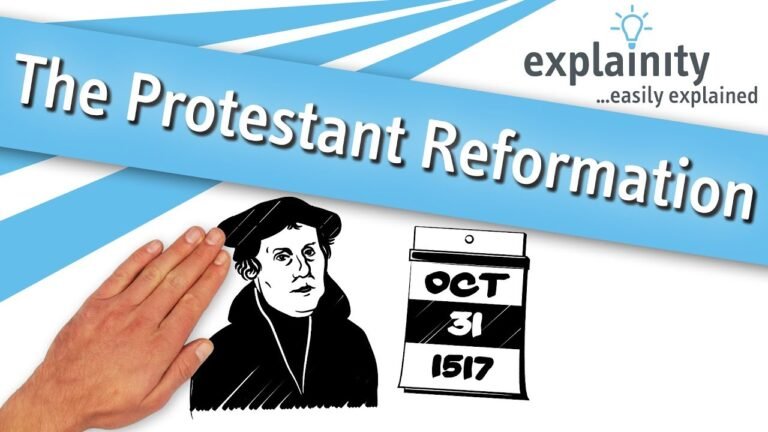Understanding Pride in the Bible
Pride is a complex theme woven throughout the Bible, often depicted as a double-edged sword. While it can signify a sense of self-worth and confidence, scripture frequently warns against the dangers of excessive pride, highlighting its potential to lead to downfall and separation from humility before God. This exploration into what pride means in the biblical context invites readers to reflect on their own perceptions of self and the spiritual implications of prideful attitudes in their lives.
What does the Bible say about pride?
Pride, in a biblical context, is often considered the root of all sin, stemming from an inflated sense of self-worth. This excessive love for one’s own excellence can lead individuals away from the path of righteousness, as it fosters a spirit of arrogance and entitlement. The narrative of Adam and Eve in the Garden of Eden serves as a poignant illustration of how pride can lead to disobedience and a fall from grace, highlighting its destructive potential.
As a deadly sin, pride not only distorts one’s perception of self but also undermines relationships with others and with God. It creates a barrier to humility, which is viewed as a heavenly virtue that counters the inclinations of prideful hearts. In this light, humility invites individuals to recognize their limitations and dependencies, ultimately guiding them toward a more authentic and faithful existence.
Embracing humility allows for personal growth and a deeper connection with the divine. It encourages a community spirit where love and service take precedence over self-aggrandizement. By acknowledging the dangers of pride and cultivating humility, individuals can navigate their spiritual journeys with grace, fostering an environment where compassion and understanding flourish.
What are Jesus’ teachings on pride?
Jesus teaches that pride is a destructive force that arises from within, tainting one’s character and leading to conflict and shame. He emphasizes that pride can lead to strife and ultimately brings about a sense of dishonor, highlighting the importance of humility in one’s life. By warning against the dangers of pride, Jesus calls for introspection and a genuine commitment to a more humble and compassionate way of living.
What are the two forms of pride mentioned in the Bible?
In the biblical context, pride can be categorized into two distinct types: legitimate pride and sinful pride. Legitimate pride is rooted in a healthy recognition of one’s accomplishments and the blessings bestowed by God. It fosters gratitude and encourages individuals to celebrate their achievements while attributing their success to divine guidance and grace. This form of pride is reflected in verses like Psalm 44:11, which emphasizes boasting in God’s name and celebrating His goodness.
Conversely, sinful pride is characterized by an inflated sense of self-worth and a disregard for others. It often leads to arrogance and a belief that one is self-sufficient, distancing individuals from their reliance on God. This type of pride can create barriers in relationships, both with God and fellow humans, ultimately resulting in spiritual downfall. Recognizing the difference between these two types of pride is essential for fostering a healthy relationship with oneself and with God.
Exploring the Biblical Perspective on Pride
Pride, often viewed as a double-edged sword in the Bible, can lead to both personal empowerment and spiritual downfall. In scripture, pride is frequently linked to a sense of self-sufficiency that distances individuals from God, as seen in Proverbs 16:18, which warns that “pride goes before destruction.” Yet, there is also an acknowledgment of healthy self-esteem and the importance of recognizing one’s gifts and contributions. By navigating the fine line between confidence and arrogance, believers are encouraged to cultivate humility, aligning their achievements with a grateful heart that honors God. Ultimately, the biblical perspective on pride serves as a reminder to remain grounded, fostering a spirit of gratitude and community rather than self-exaltation.
The Dual Nature of Pride: Sin and Virtue
Pride occupies a unique position in the human experience, embodying both a potent sin and a noble virtue. On one hand, unchecked pride can lead to arrogance, alienation, and a distorted self-image, fostering a sense of superiority that alienates others and distorts reality. Conversely, when embraced in moderation, pride can inspire confidence, motivate achievement, and cultivate a sense of self-worth that propels individuals toward their goals. This duality reveals how pride can shape our actions and relationships, reminding us that the balance between humility and self-respect is essential for personal growth and harmonious coexistence. Ultimately, recognizing pride’s dual nature enables us to harness its positive aspects while guarding against its potential to lead us astray.
Lessons from Scripture: When Pride Becomes Fall
Pride, often seen as a virtue in our achievements, can swiftly morph into a perilous downfall when unchecked. Scripture teaches us that the heart of pride is a deceptive force, blinding us to our limitations and fostering a false sense of superiority. The stories of great leaders who faced ruin due to their hubris serve as timeless reminders that humility is a strength, not a weakness. By embracing a perspective of gratitude and recognizing our shared humanity, we can navigate life’s challenges with grace, ensuring that our successes uplift rather than isolate us. Ultimately, it’s through self-awareness and humility that we find true strength and resilience, steering clear of the pitfalls pride can present.
Cultivating Humility: A Biblical Approach to Pride
In a world often driven by self-promotion and the relentless pursuit of recognition, cultivating humility emerges as a vital countermeasure to pride. The Bible offers profound wisdom on this journey, reminding us that true greatness lies not in exalting oneself but in serving others. By embracing a mindset of humility, we open our hearts to deeper connections and foster an environment of grace and understanding. This biblical approach encourages us to reflect on our actions and attitudes, ultimately guiding us toward a more fulfilling and meaningful life rooted in compassion and respect for those around us.
Pride in the Bible serves as a profound reminder of the delicate balance between self-worth and arrogance. It challenges individuals to reflect on their motivations and relationships, urging humility as a pathway to genuine strength and connection with others. By embracing the teachings on pride, we can cultivate a spirit of gratitude and service, ultimately enriching our lives and communities in ways that honor our shared humanity.







